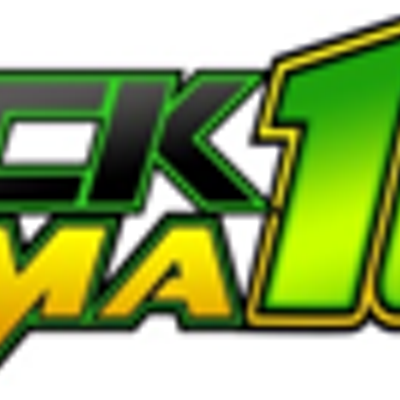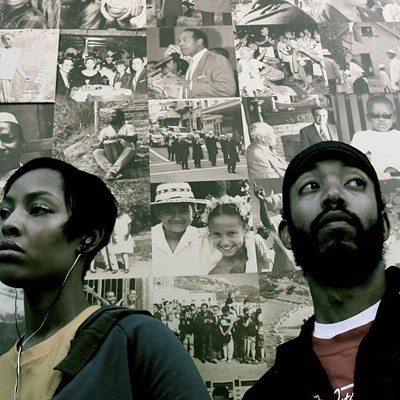"Well, for one thing, we're still putting out records," says Rick Nielsen, the band's guitarist and primary songwriter. And, unlike most bands whose careers have lasted for more than a quarter-century, Cheap Trick still retains its four original members--singer/guitarist Robin Zander, bassist Tom Petersson, and drummer Bun E. Carlos--rather than, as Nielsen puts it, "the original guitar tech." (Petersson, it should be noted, left the band for an eight-year spell in the '80s before eventually rejoining.) Indeed, he is aghast to learn that actual dinosaurs Foghat and Bachman-Turner Overdrive are opening the band's Tucson show, on July 4, at Tucson Electric Park. "God, I didn't realize who we were playing with," he sighs.
Defying conventional wisdom, aside from a lackluster spell in the late '80s ("The Flame," anyone?), which not so coincidentally included several of the years Petersson spent away from the fold, the band has managed to remain vital after 28 years.
Producer, musician, and noted indie-centric music snob Steve Albini, who earlier this year invited the band to perform at All Tomorrow's Parties, a British music festival he curated, recently called Cheap Trick, "the greatest active rock band in the world." Nielsen, in typical self-deprecating form, retorts, "Yeah, he must have been high when he said that," before offering, "That's a huge compliment coming from him, because he doesn't like anything."
Formed in Rockford, Illinois, in 1974, Cheap Trick spent its infancy opening for some of the era's biggest arena rock acts, such as Kiss, Boston, and Journey, before even releasing an album.
The band's onstage persona was remarkable, too, with Zander and Petersson's chiseled features giving the girls what they wanted, Nielsen flaunting his dorkiness with his Huntz Hall-borrowed, flipped-lid baseball cap and mismatched clothes (which always included the band's trademark checkerboard pattern), and the paunchy, mustachioed Carlos coming off more like an accountant than a rock star.
By the time the band finally headed into the studio to record a proper album, it had a wealth of material, which combined power-pop hooks with hard-rock crunch, punk urgency and a healthy dose of Midwestern humor. Culling the songs the band had written while honing its live chops, the band's first three albums--1977's double-whammy of the self-titled debut and In Color, and 1978's Heaven Tonight (all on Epic)--are textbook examples of American rock music at its finest.
But it was the live album, At Budokan (1979, Epic), recorded in Japan, where the band were already mega-stars, that finally cocked mainstream American ears to its infectious sound. The album showcased Cheap Trick's dynamic live performances, and even today, most casual listeners are only familiar with classics like "Surrender" and "I Want You to Want Me" from the live versions. The influence of the band's material from the '70s is still felt today, far more influential to what gets called "emo" these days than actual emo bands like Rites of Spring. To wit, Jimmy Eat World's current radio hit, "The Middle," sounds exactly like a lost Cheap Trick gem.
Throughout the '80s, the band soldiered on, releasing a new record every year or two, with mixed results (though each contained at least a few keepers). But Cheap Trick returned to form in the '90s, releasing a pair of albums--1994's Woke Up With a Monster (Warner Brothers) and 1997's second self-titled effort (Red Ant)--that, Nielsen says, were largely buried by a lack of promotion from the record companies. In addition, the Tricksters have largely spent the last several years--in addition to their tireless tour schedule--celebrating their legacy by re-issuing remastered versions of the first three albums (with bonus tracks, natch), releasing a box set, Sex, America, Cheap Trick (1996, Sony) and a few live albums and companion DVDs. And the band has recently finished work on a new studio record, its first in five years, due out later this year, with noted producer Chris Shaw (Bob Dylan's Love and Theft, Ween's White Pepper).
Asked to put Cheap Trick's legacy in perspective, with impenetrable modesty, Nielsen says, "Well, we do it all--pop songs, ballads, rock songs. I don't know that we're great at any of it, but I think we do OK with all of it."
And after all these years, is it still fun? "Oh yeah," he says, "when you see us smiling onstage, that's the real deal."
We'll be smiling back.










